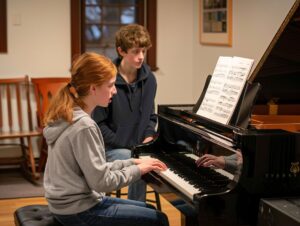Are you passionate about music and skilled at playing the piano? Have you ever considered sharing your love for music by becoming a piano teacher?
In this article, we will explore the qualifications and skills required to become a successful piano teacher.
From education and experience requirements to essential teaching techniques and strategies, we will cover everything you need to know to get started in this rewarding profession.
Whether you are looking to set up a teaching space, build a student base, or create engaging lesson plans, this article will provide valuable insights and tips for aspiring piano teachers.
What is a Piano Teacher?
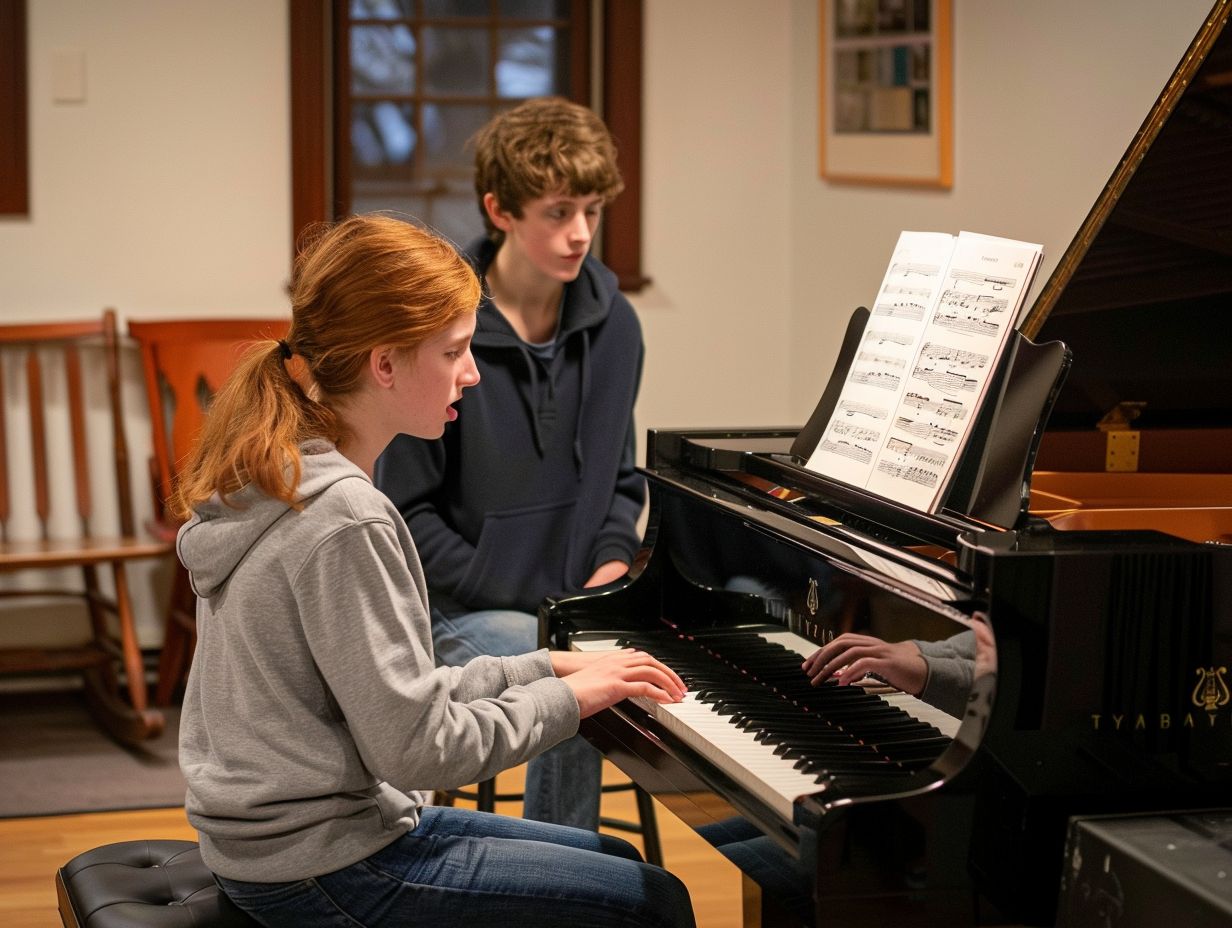
A Piano Teacher is a professional responsible for imparting knowledge and skills in piano playing to students across different proficiency levels, ranging from beginners to advanced players. They play a pivotal role in guiding students along their musical journey, aiding them in honing their piano skills and realizing their musical aspirations.
By employing a diverse range of teaching methods such as sight-reading, music theory, and ear training, Piano Teachers ensure that their students receive a comprehensive musical education. They frequently utilize a combination of formal assessments, including exams and recitals, alongside informal feedback sessions to monitor progress and pinpoint areas necessitating improvement.
One of the primary challenges encountered in piano instruction is customizing lessons to suit the distinct learning styles and individual paces of each student, demanding adaptability and patience on the teacher’s part.
Qualifications and Skills of a Piano Teacher
For excel as a Piano Teacher, individuals must demonstrate a blend of educational credentials and specialized expertise in music instruction. Such qualifications may encompass certifications obtained from reputable institutions like the Music Teachers National Association or the Royal Conservatory of Music.
Education and Experience Requirements
Achieving proficiency as a Piano Teacher typically necessitates a robust educational background in music, complemented by hands-on teaching experience. The integration of theoretical knowledge and practical teaching exposure serves as the cornerstone for an efficacious piano teaching methodology.
It is the amalgamation of formal music education, such as a degree in music or music education, and practical experience in instructing students of diverse proficiency levels and age groups that enables a Piano Teacher to excel in their vocation.
A mastery of pedagogical methods, comprehension of individual learning modalities, and adept communication strategies are pivotal elements in crafting engaging and impactful lessons. By continuously refining both their musical acumen and instructional abilities, Piano Teachers can motivate and steer their students along a rewarding musical odyssey.
Essential Teaching Skills and Techniques
Competent piano teachers are characterized by a diverse set of crucial teaching skills and techniques, encompassing robust pedagogical methods, effective communication abilities, and the capability to inspire and motivate students along their musical journey.
Pedagogical approaches are integral in the repertoire of a piano teacher, determining how lessons are structured, repertoire is selected, and student progress is evaluated. Effective communication strategies are essential for the clear conveyance of musical concepts, the nurturing of a collaborative learning atmosphere, and the provision of constructive feedback. Motivational techniques, such as setting achievable goals, acknowledging accomplishments, and instilling a passion for music, serve to maintain student engagement and foster a love for learning.
By amalgamating these components, piano teachers have the opportunity to cultivate enriching educational experiences that enable students to realize their musical abilities to the fullest extent.
Getting Started as a Piano Teacher
Embarking on a career as a piano teacher entails the establishment of a teaching studio, the attraction of students, and the creation of engaging piano lessons that cater to the diverse needs of learners. Furthermore, effective marketing strategies and consistent practice are essential components for the development of a prosperous teaching practice.
Setting up a Teaching Space
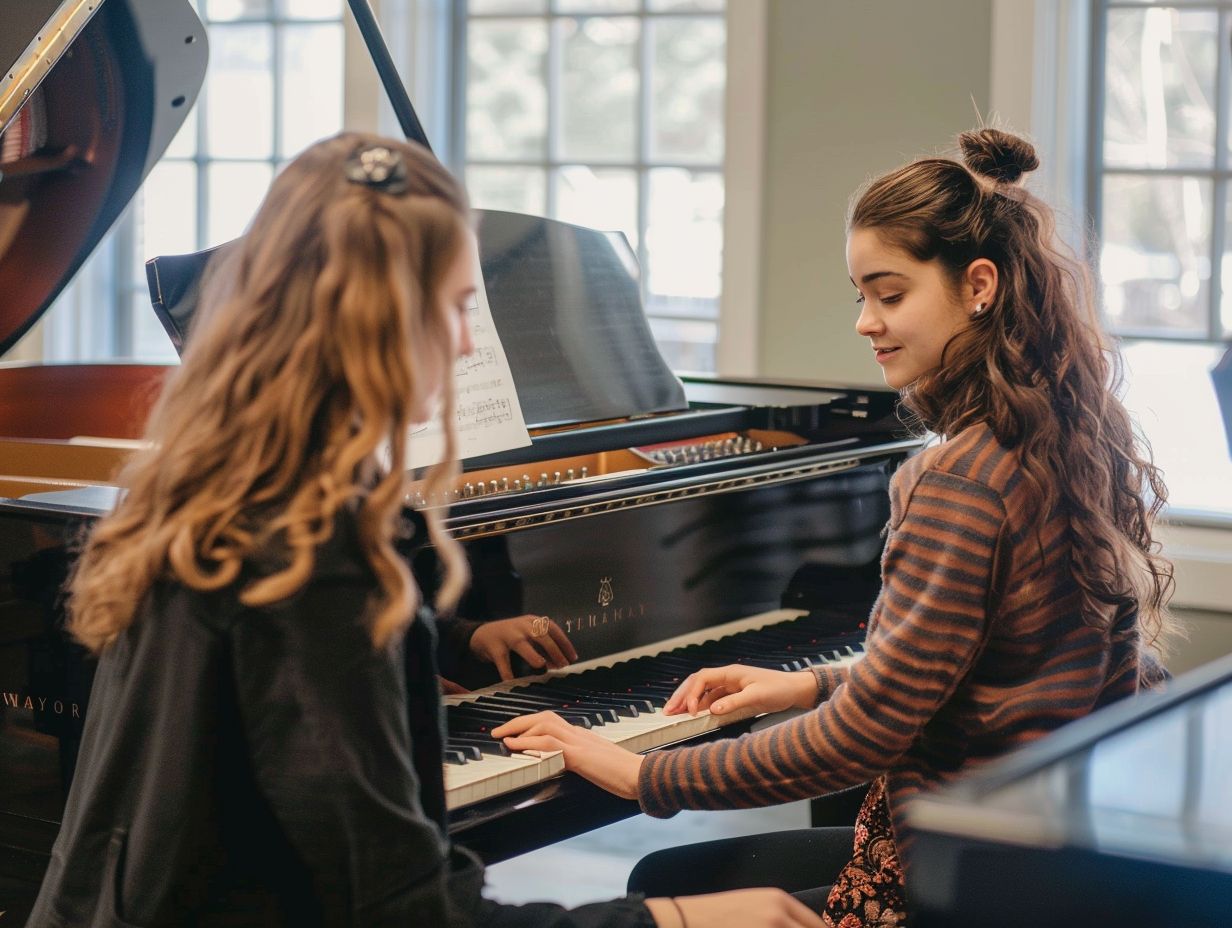
The establishment of an optimal teaching space holds paramount importance for Piano Teachers in fostering a conducive learning environment for their students. Such a space should be furnished with essential instruments, digital tools, and teaching materials that serve to enrich the teaching and learning process.
Possessing proper instruments, such as a high-quality piano or keyboard, stands as a foundational requirement for a Piano Teacher to effectively demonstrate techniques and cultivate student practice habits. Additionally, the integration of digital tools like interactive applications and software can introduce a dynamic element into lessons, thereby enhancing engagement and accessibility for learners.
Moreover, the inclusion of teaching materials such as sheet music, theory books, and supplementary resources plays a vital role in delivering a comprehensive music education. These resources aid students in developing their skills and expanding their knowledge base under the guidance of the Piano Teacher.
An adequately equipped teaching space not only nurtures creativity and inspiration but also ensures that students receive personalized instruction tailored to their unique learning requirements. This comprehensive approach facilitates an enriched educational experience and contributes to the holistic development of students within the realm of music education.
Building a Student Base
Attracting and retaining students stands as a pivotal factor in the career of a Piano Teacher. Critical to the development of a robust and loyal student base are the implementation of effective marketing strategies, the establishment of clear pricing structures, and the provision of flexible scheduling options.
Promoting music lessons through various social media platforms, hosting recitals to exhibit student progress, and engaging in collaborations with local schools for outreach programs serve as means by which a Piano Teacher can enhance visibility and draw in new students. Supplementing these efforts, offering incentives like discounts for referrals, organizing group activities to cultivate a sense of community among students, and ensuring a conducive learning environment play vital roles in student retention and long-term success.
Lesson Planning and Curriculum
Developing stimulating lesson plans and creating a thorough curriculum are integral responsibilities for Piano Teachers in delivering organized and impactful music education. By incorporating aspects of music theory and technical piano skills, the learning experience for students is enhanced.
Creating Lesson Plans
The development of creative and engaging lesson plans is a fundamental element of effective piano instruction. Piano instructors are tasked with infusing inspiration and creativity into the structure of their lessons to maintain student motivation and commitment to their musical advancement.
Incorporating interactive activities, such as music-based games, improvisational exercises, and challenges related to creative composition, enables teachers to cultivate a dynamic learning environment that ignites students’ enthusiasm for music. The integration of diverse teaching methodologies, including the utilization of technology, visual aids, and collaborative group work, serves to enrich and diversify the classroom experience. Additionally, encouraging students to explore various musical genres and styles can expand their musical horizons and cultivate a deeper appreciation for the art form.
Incorporating Music Theory and Technique
The incorporation of music theory principles and advanced technical techniques in piano lessons serves to enrich students’ overall musical comprehension and skill level. Piano instructors play a crucial role in overseeing students’ progress in both the theoretical and technical dimensions of music.
They not only offer essential instruction in mastering scales, chords, and arpeggios but also aid students in cultivating a deeper understanding of the fundamental structures and patterns present in music. By introducing concepts like harmony, counterpoint, and form, piano teachers prompt students to analyze musical compositions with a more discerning ear, thereby fostering a more comprehensive appreciation of music.
By integrating technical exercises such as finger independence drills and challenges in hand coordination, instructors lay the groundwork for the development of proficient playing skills, ensuring that students can perform intricate musical passages with precision and accuracy.
Managing and Engaging Students
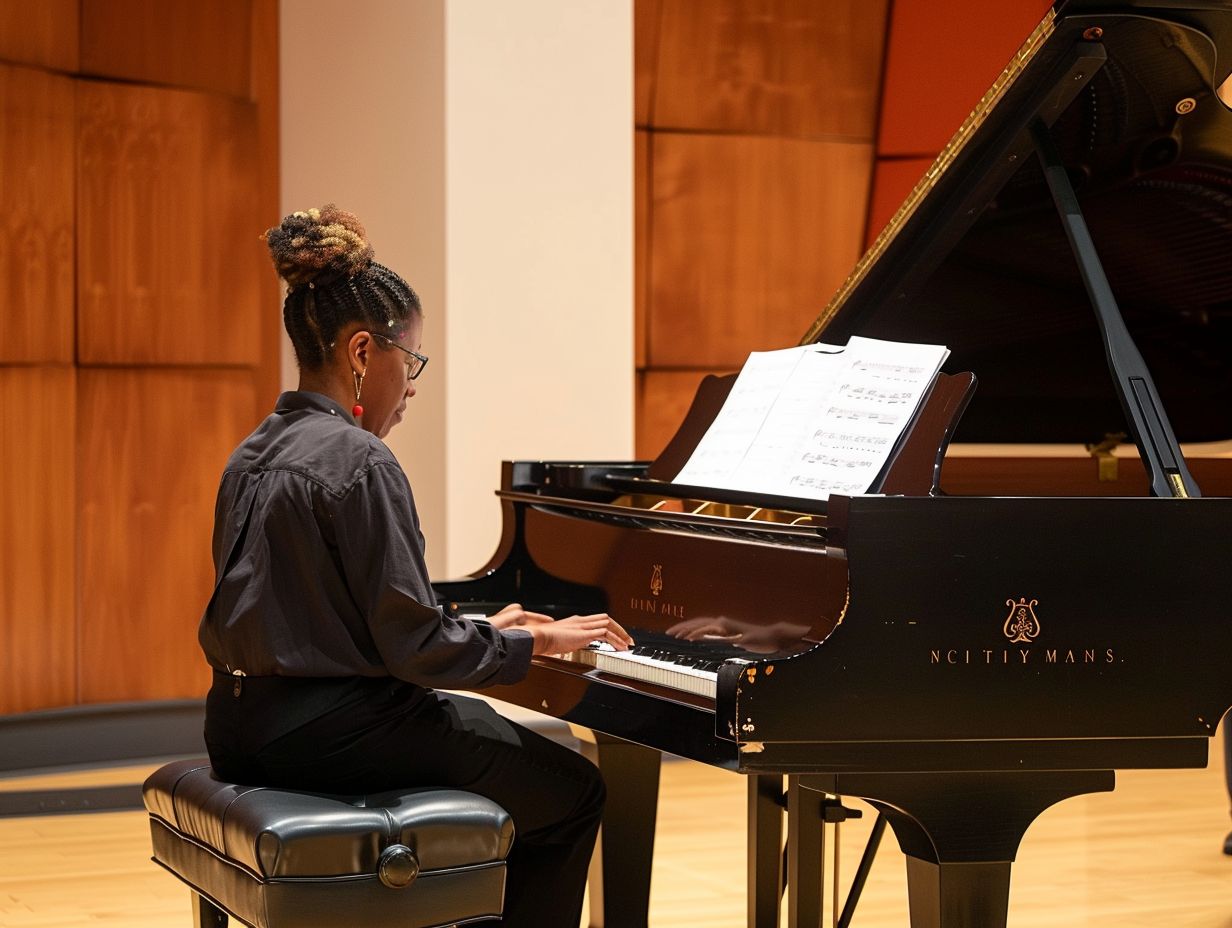
Efficiently overseeing and engaging with students is a fundamental aspect of achieving success as a Piano Teacher. Through the cultivation of open lines of communication, the monitoring of student progress, and the recognition of accomplishments, educators can establish a nurturing and motivating educational setting.
Effective Teaching Strategies
Utilizing effective teaching strategies is imperative for piano teachers to facilitate students in attaining their musical objectives and enhancing their holistic development. These strategies may encompass the customization of lesson plans, the establishment of goals, and the implementation of student-centered learning methodologies.
By customizing lesson plans to suit the distinctive needs of individual students, teachers are able to target specific areas for improvement and leverage the strengths of the student. The encouragement of goal setting not only cultivates a sense of accomplishment but also furnishes a roadmap for advancement. The integration of student-centered learning methodologies guarantees that lessons are captivating and pertinent, fostering active engagement and a deeper comprehension of musical principles.
Through the amalgamation of these methodologies, piano teachers can establish a dynamic and enriching educational milieu that nurtures students’ enthusiasm for music.
Dealing with Challenges and Difficult Students
The responsibilities of a Piano Teacher often involve navigating challenges and managing difficult students. Essential strategies in addressing such situations include providing constructive feedback, cultivating a growth mindset among students, and implementing personalized strategies for improvement.
The provision of specific and timely feedback is crucial in assisting students to recognize and rectify mistakes while enhancing their musical skills. Encouraging a growth mindset is pivotal in helping students view challenges as opportunities for personal and musical development rather than hindrances.
Utilizing tailored teaching methods based on each student’s unique learning style and preferences can increase student engagement and motivation. By consistently seeking opportunities to enhance teaching techniques and remaining receptive to new instructional approaches, a teacher can effectively adapt to the diverse needs and preferences of students.
Frequently Asked Questions
What qualifications do I need to become a piano teacher?
To become a piano teacher, you will need to have a strong background in piano performance and music theory, along with a teaching certification or degree in music education. You may also need to pass a background check and obtain any necessary licenses or permits in your area.
Do I need to have prior teaching experience to become a piano teacher?
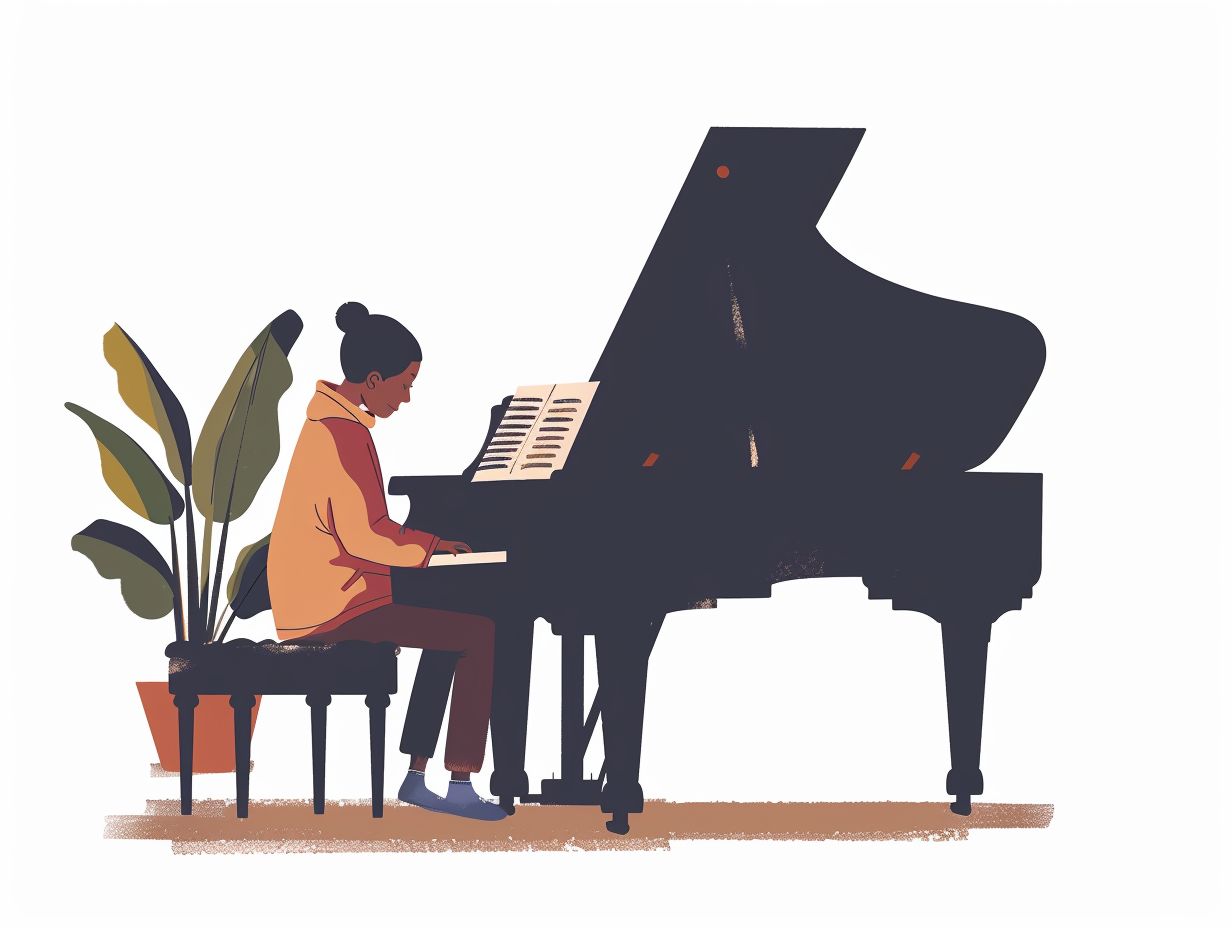
While prior teaching experience can be beneficial, it is not always necessary to become a piano teacher. As long as you have a solid understanding of piano techniques and music theory, along with a passion for teaching, you can succeed as a piano teacher.
What steps can I take to improve my piano teaching skills?
To improve your piano teaching skills, you can attend workshops or seminars specifically for piano teachers, gain experience by teaching in a variety of settings, and continue your own education by taking courses or lessons from experienced piano teachers.
Do I need to be able to play advanced piano pieces to become a piano teacher?
While having advanced piano skills can be beneficial, it is not always necessary to become a piano teacher. As long as you have a strong foundation in piano techniques and music theory, you can still effectively teach beginner and intermediate level students.
What qualities make a successful piano teacher?
A successful piano teacher should have a strong passion for music and teaching, excellent communication and interpersonal skills, patience, adaptability, and the ability to tailor lessons to each individual student’s needs and learning style.
Are there any benefits to becoming a piano teacher?
Yes, there are many benefits to becoming a piano teacher! Some of them include the opportunity to share your love and knowledge of music with others, the fulfillment of seeing your students progress and succeed, and the potential for a flexible and rewarding career.
